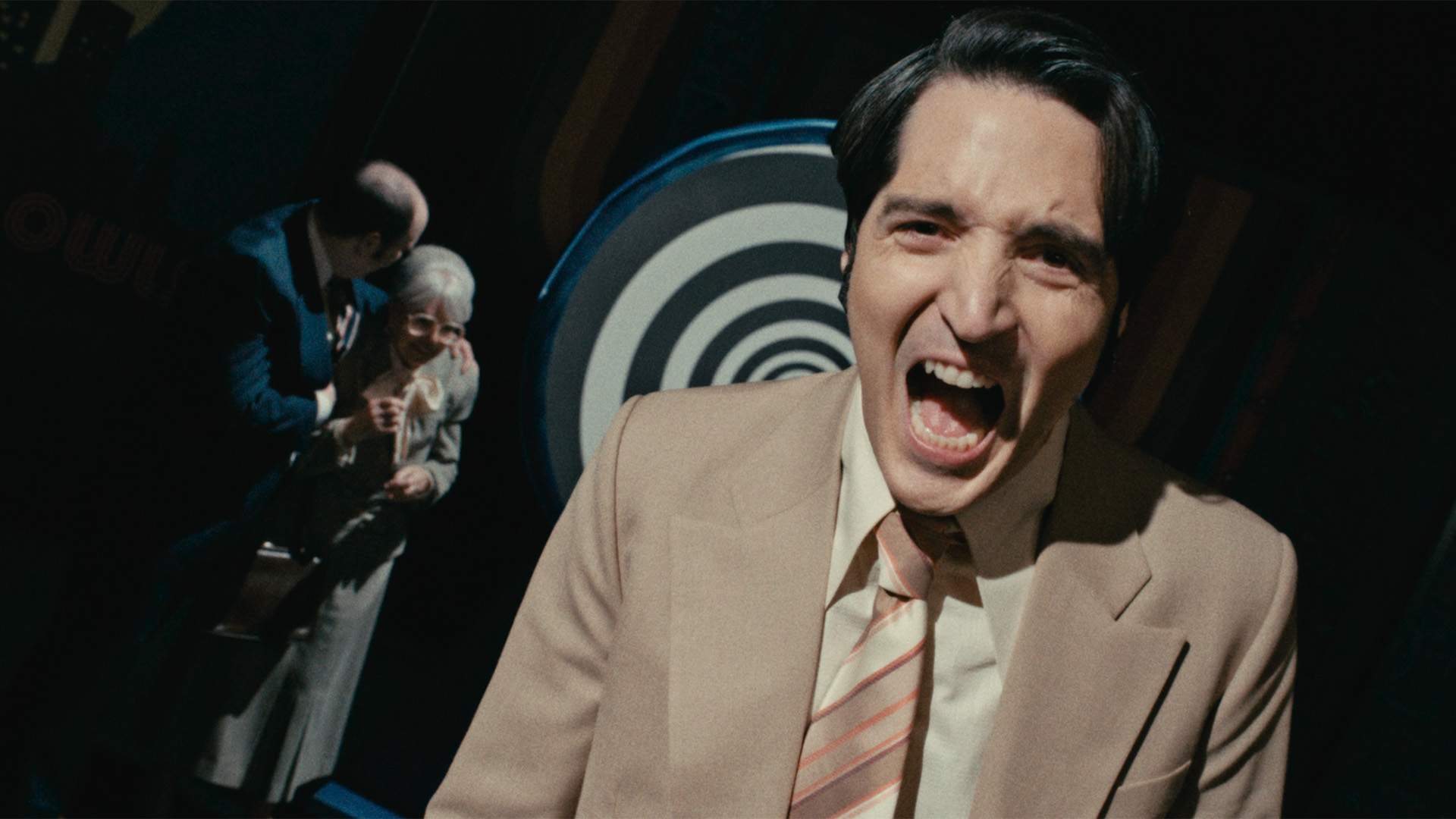Riffing on 70s TV to Create Aussie Horror's Next Hit: Cameron and Colin Cairnes Chat 'Late Night with the Devil'
Stephen King couldn't take his eyes off Australia's latest horror sensation. 'Gremlins' director Joe Dante is a fan. The filmmakers behind it talk us through their unnerving hit.
The greatest trick that Late Night with the Devil pulls could be a trick on future viewers. In a decade or so, perhaps less, someone will likely come across the film on a streaming platform and think that the year that's listed next to its name is a typo. The illusion would be stronger if video stores still existed, where the Australian-made horror marvel that's had audiences talking since its 2023 SXSW premiere could sit on a shelf beaming its 70s-era look and artwork at perusers searching for their next watch. Everything about the movie, which is presented as a found-footage documentary showing a Halloween episode of a late-night talk show in full, wants everyone to make that misinterpretation.
The year is 1977 in Cameron and Colin Cairnes' latest feature, which joins the writer-director siblings' resume after 100 Bloody Acres and Scare Campaign. The date is indeed October 31. The show: Night Owls with Jack Delroy, which has been slipping in the ratings. The week is Sweeps Week, the key ratings period in the US, in fact. Host Jack Delroy (David Dastmalchian, Dracula: Voyage of the Demeter) has been struggling himself, following the death of his wife (Georgina Haig, NCIS Sydney) 12 months prior. In his efforts to pick himself and his show back up, he commits to a special live spooky instalment featuring a skeptic (Ian Bliss, Safe Home), psychic (Fayssal Bazzi, Prosper), parapsychologist (Laura Gordon, Foe) and a girl (Ingrid Torelli, Force of Nature: The Dry 2) who is reportedly possessed — and being willing to do whatever it takes to succeed gets a demonic spin.
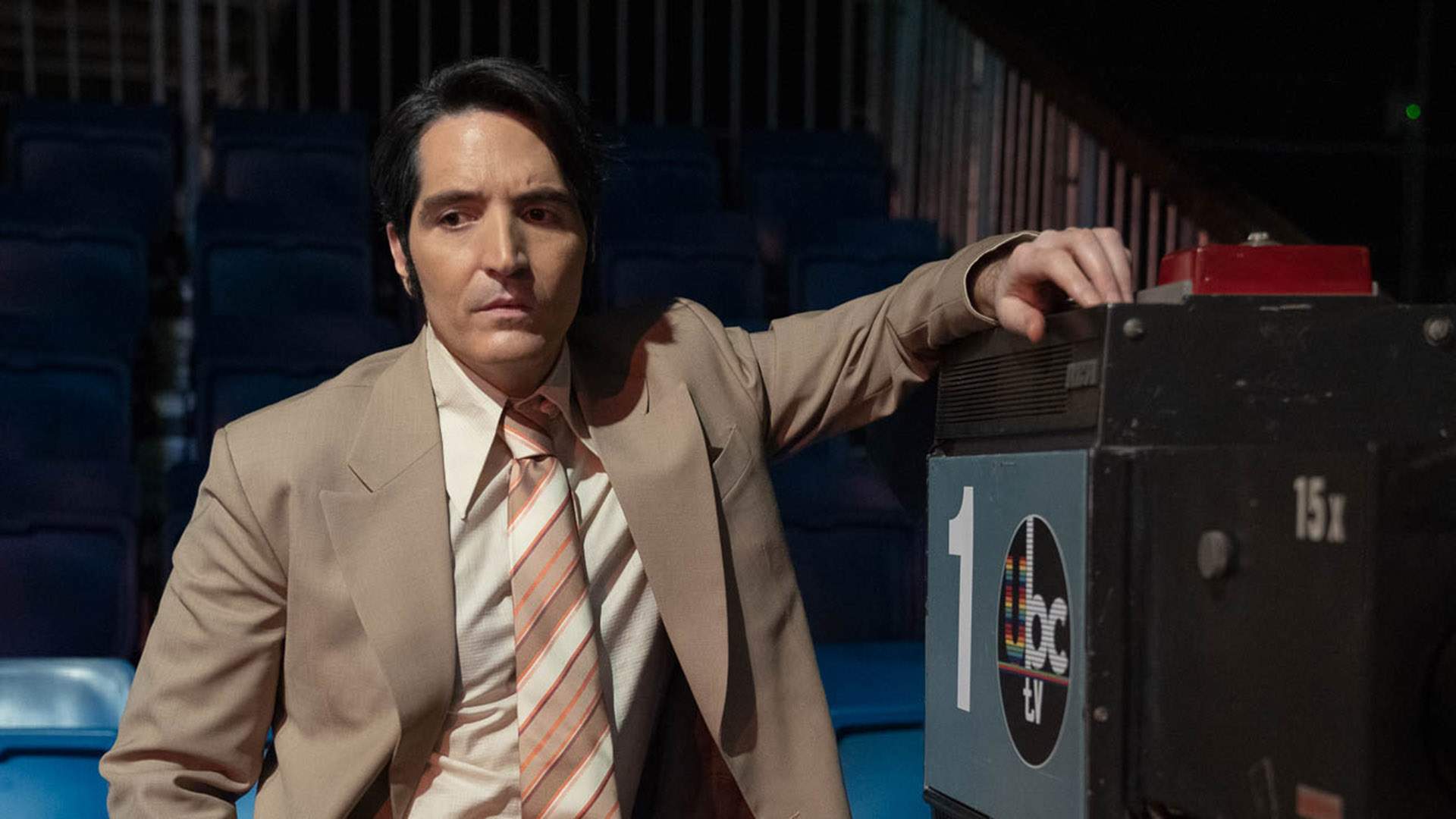
The experience of watching Late Night with the Devil is like stepping into whichever type of time machine takes your fancy; the attention to period detail is that exact, as is the Cairnes' commitment to practical effects when things get eerie. The same can be said of Dastmalchian's stunning lead performance, playing a character styled after Australian TV's Don Lane alongside American television's Dick Cavett and Johnny Carson. When future viewers add Late Night with the Devil to their queue, the can't-look-away portrayal from the picture's star is bound to get them thinking that this truly is an unearthed treasure from the 20th century. Aptly, Dastmalchian is a big fan of horror TV hosts, even penning an article for Fangoria about them.
So, take a childhood in the 80s spent watching late-night talk shows, a love of horror from that decade and the one prior, a keen awareness of the period's flicks about television such as Network and The King of Comedy, experience working in studios themselves, an exceptionally well-cast lead and a killer concept — plus that dedication to authenticity — and the next Aussie horror hit is the end result. "It's our twisted love letter to talk shows and the horror movies of that era," Colin tells Concrete Playground during a chat with both brothers. "I think it was really was a golden age for horror movies in the States, but also in Australia to some degree. We made some pretty cool stuff back then."
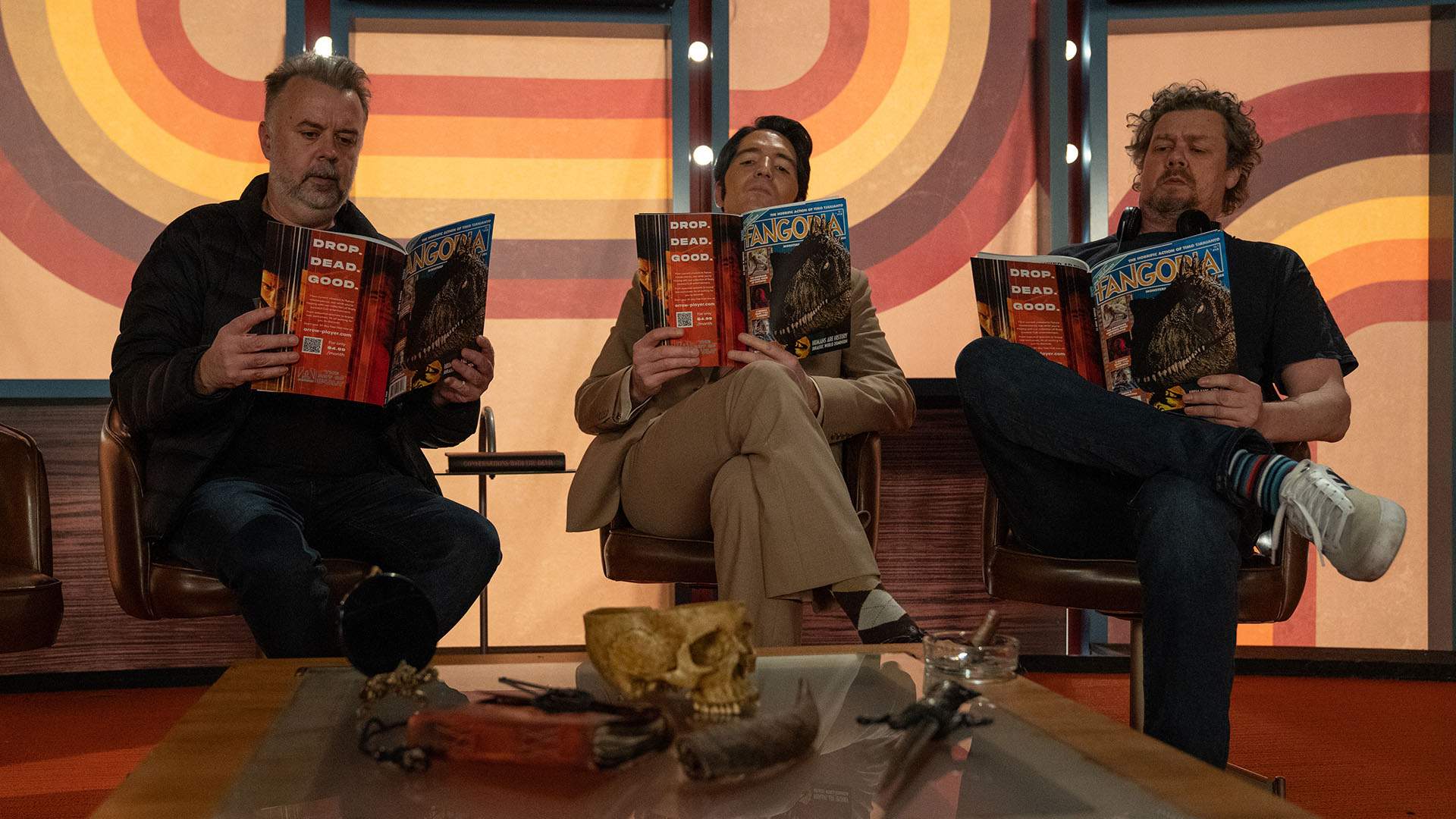
A wild horror ride, a helluva character study, and an unpacking of the way that sensationalist media haunts and possesses as much as literal spirits, too, Late Night with the Devil is "pretty cool stuff" itself, deservedly earning a reputation far and wide. Iconic horror author Stephen King called it "absolutely brilliant" and said that he couldn't take his eyes off it". Mere days before we spoke with Colin and Cameron, they had run into one of their influences IRL, who also adored it.
"Definitely all the great films by David Cronenberg and John Carpenter, the Wes Cravens," Colin cites as inspiration. "Joe Dante, who we were lucky enough to bump into two days ago in LA walking out of the screening of our film, which was really cool. Mind blown — it was just a wonderful chance encounter. And we've since exchanged emails. Yeah, he's a fan of the film. So that was really, really special to us. As kids growing up watching Gremlins or The Howling or Innerspace, all these great 80s horror hybrids, fun horrors that he made, it was just such an honour to bump into the man who had just seen our film, which was crazy."
After it popped up on the festival circuit in 2023, viewers Down Under have been able to discover why Late Night with the Devil has been wowing King, Dante and more since it hit local cinemas on Thursday, April 11. We chatted with Colin and Cameron about their inspirations, specifically picking 1977 as the year to set the film in, the work that goes into making the movie look and feel so authentic, their take on Delroy and getting Dastmalchian to play him, and more.

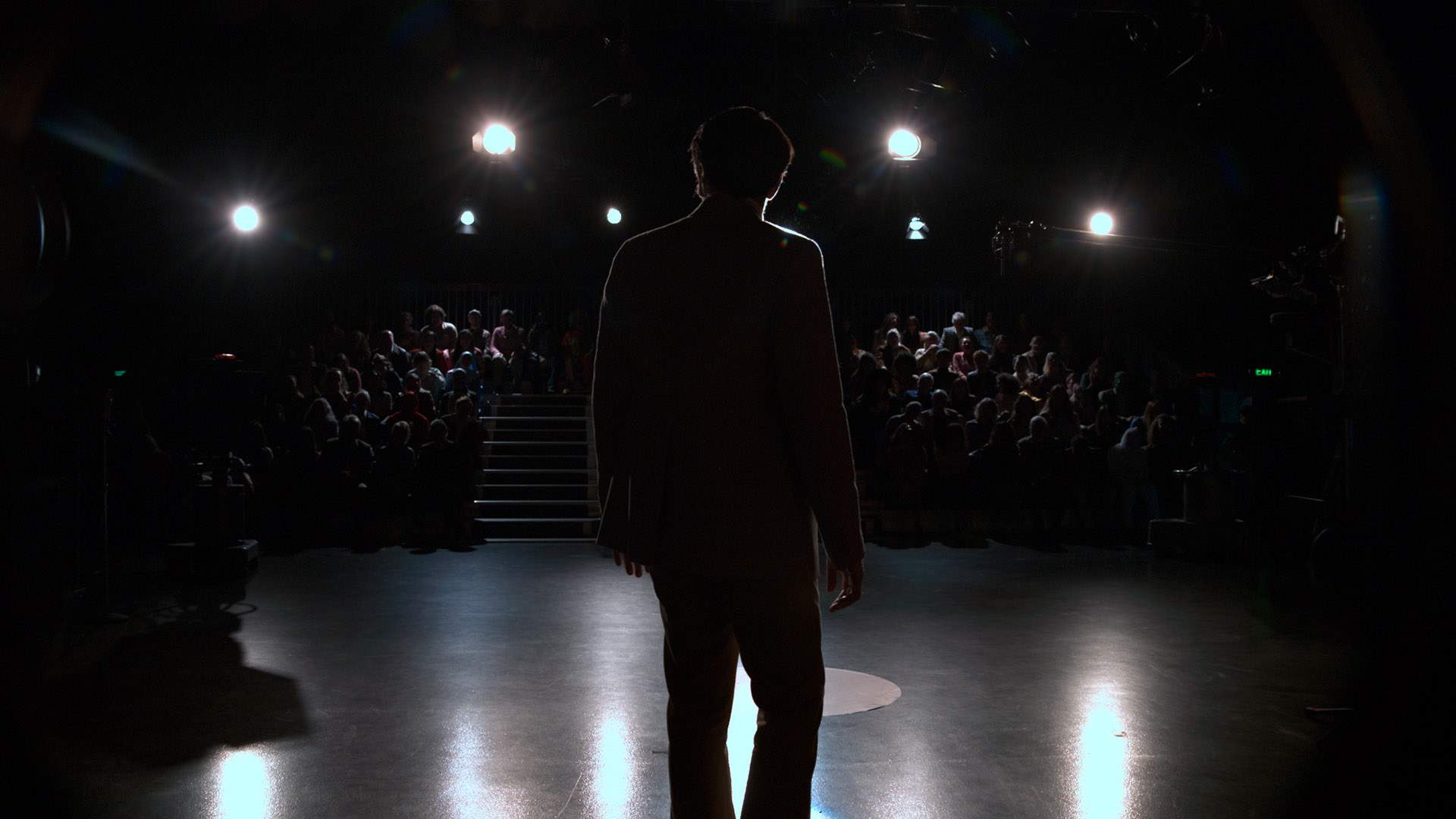
On Taking Inspiration From Watching Late-Night Talk Shows as Kids in the 80s in Australia
Cameron: "I think TV was just a bit looser back then, and felt a little more dangerous. It was late night, and for a kid staying up late to watch those shows, it just felt a little taboo.
So, what we love about that period in those shows — and we're talking not just our Australian icons, but the American ones as well — is just they all felt unscripted and dangerous, and like anything could happen or anything could go wrong at any minute. So that felt like fertile ground for us to to play in.
And those experiences, they stuck with us. I think when you're young and you're watching stuff, you're very impressionable. So we're watching lots of horror movies on VHS, and we were watching lots of TV at home, lots of American stuff. It was all feeding into the script and to the story. We drew on those experiences quite a lot."

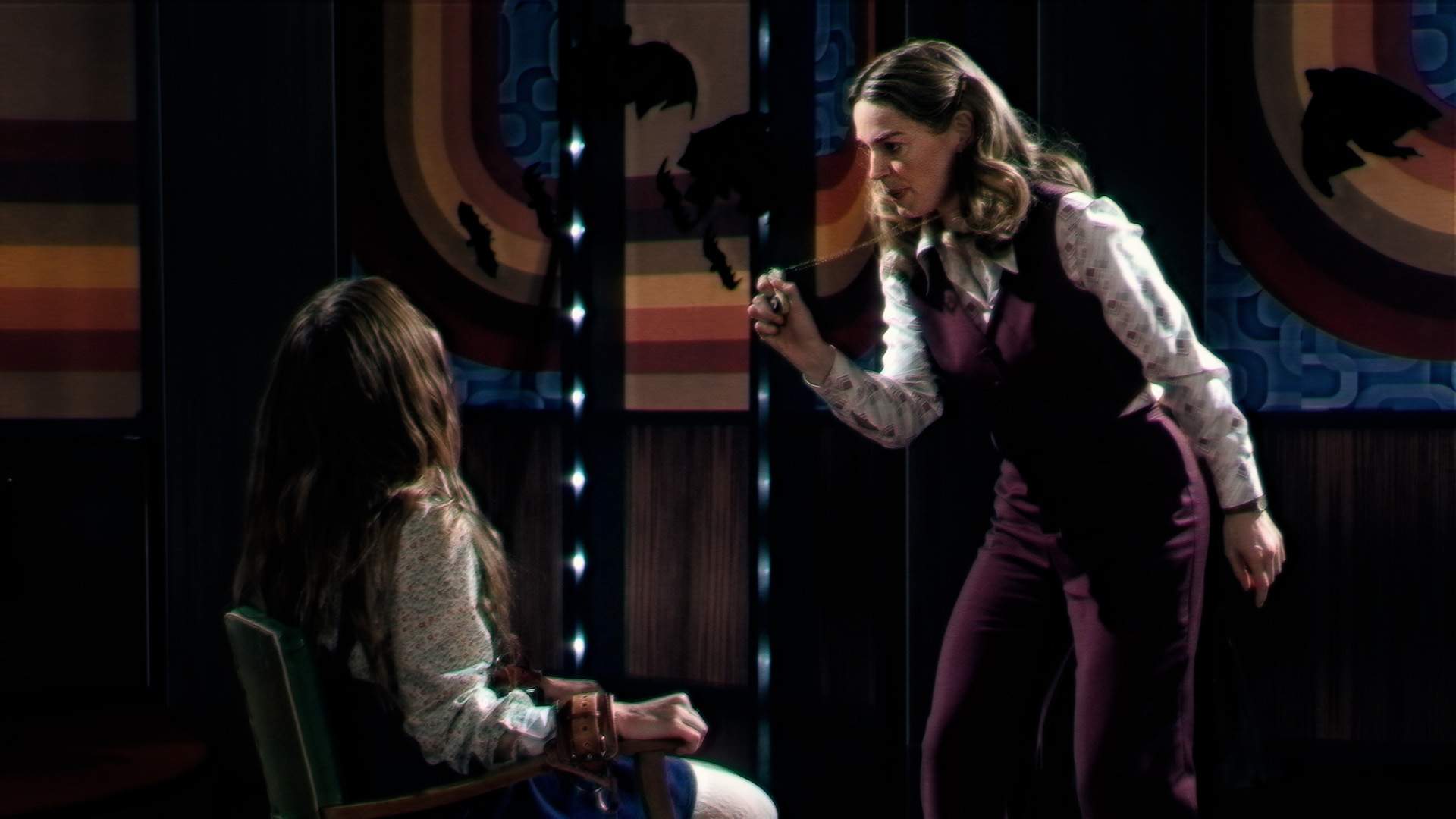
On Setting the Film Not Just in the 70s, But Specifically in 1977
Cameron: "It really came down to our date, didn't it? Like 77, we wanted to set it on Halloween night, but it also needed to be Sweeps Week, if that means anything."
Colin: "The ratings period."
Cameron: "So in our research, we discovered that in 77 on Halloween week, it was actually Sweeps Week. So we tried to be as authentic as we could with every detail."
Colin: "What's not to like about 77? We always knew it was somewhere in that range, but 77 felt like that was that was peak 70s, really."
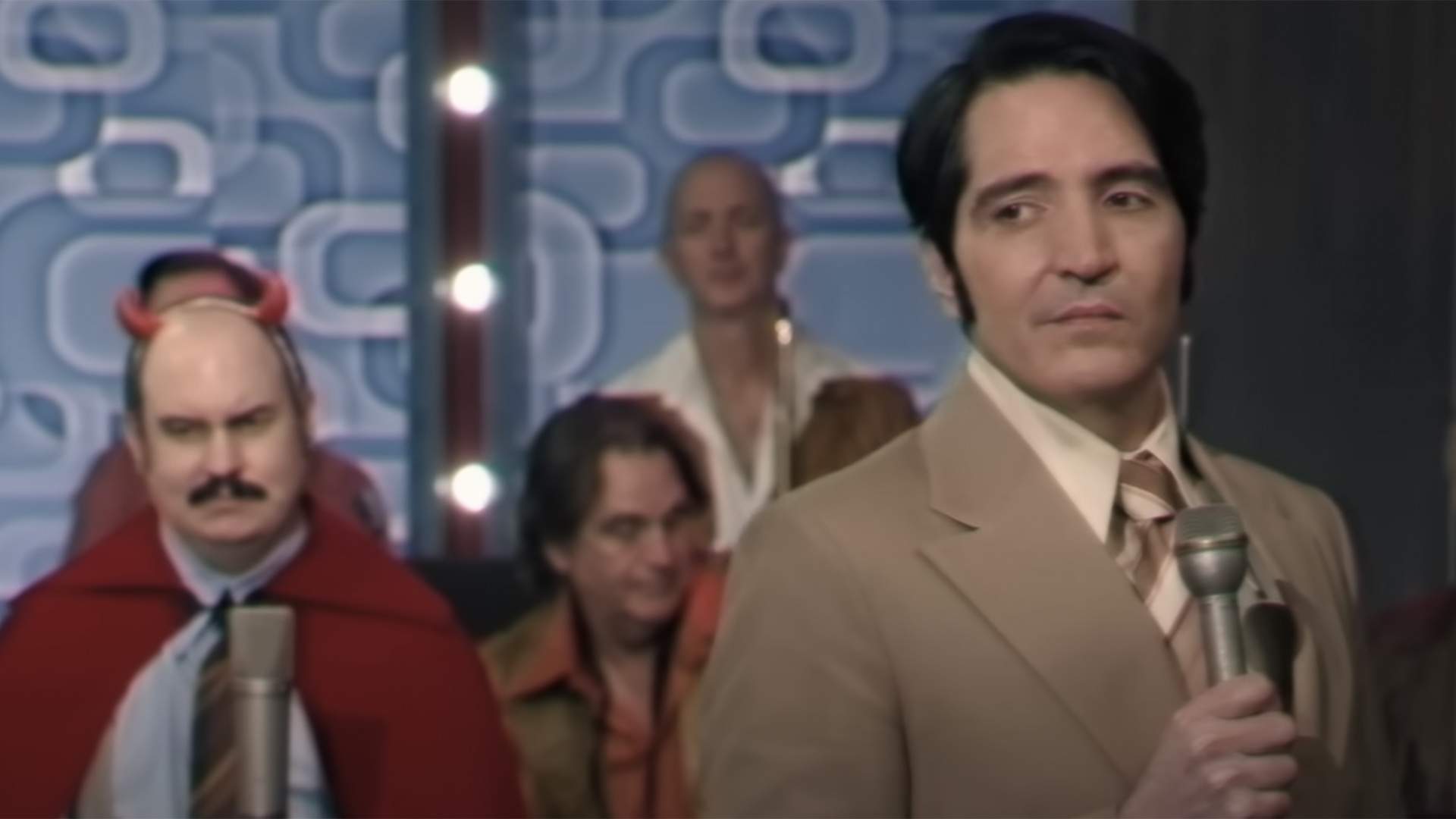
Cameron: "It was kind of the peak in-between time, too. The Exorcist, I think was released in 73, and then we were at the dawn of the Satanic panic. So I think, between 73–80, that period felt right.
And also, we wanted to suggest that Night Owls, the show Jack Delroy hosts, had been on the air for a while and was struggling. So it just made sense that it maybe started around early 70s."
Colin: "And going back to the movies, that's when that cycle of great films — I mean, there'd been Texas Chain Saw, probably that was 73, 74 maybe, that's when all those directors that we admire and are paying some homage to, I think, started to do their work.
Halloween, I think was released 78, just a bit later.
Network, I think, was released beginning of 77. So all that wonderful stuff was happening at that time, so that felt right — and yes, fortunately, Halloween fell on a Monday night at the beginning of Sweeps Week."

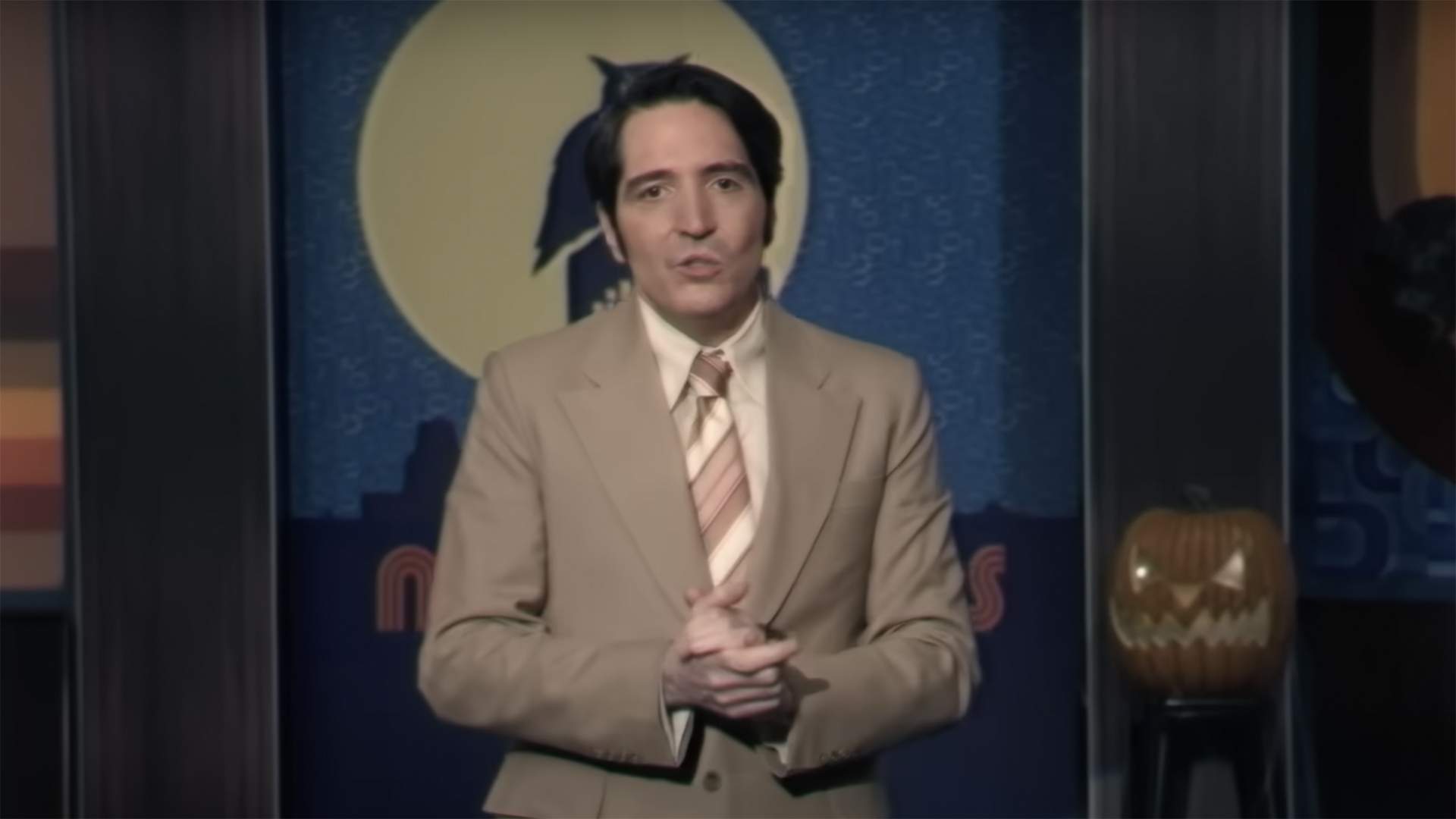
On the Movie's Commitment to Period Detail and the Work That Went Into It
Cameron: "Being as authentic as we could was just key to the whole movie. If no one's buying it, then they're checking out and it's not going to be worth your time. So we took all that stuff really, really seriously — just immersed ourselves in that world. I think having grown up a little bit in the period, and certainly through the 80s, we felt a little bit more connected to it, to that period."
Colin: "We knew if something was a bit phony. I think a lot of the audience has been actually a younger crowd, but we are finding people in their early 20s talking to us after screenings, saying ' you know, I'm going bring my mum and dad to this. I reckon they'll really like it'.
So people are sensing the authenticity of it, and like Cam's saying, I don't think the scares are going to work, the humour won't work — and, importantly, the drama isn't going to work — if it doesn't feel of a very specific time and place."
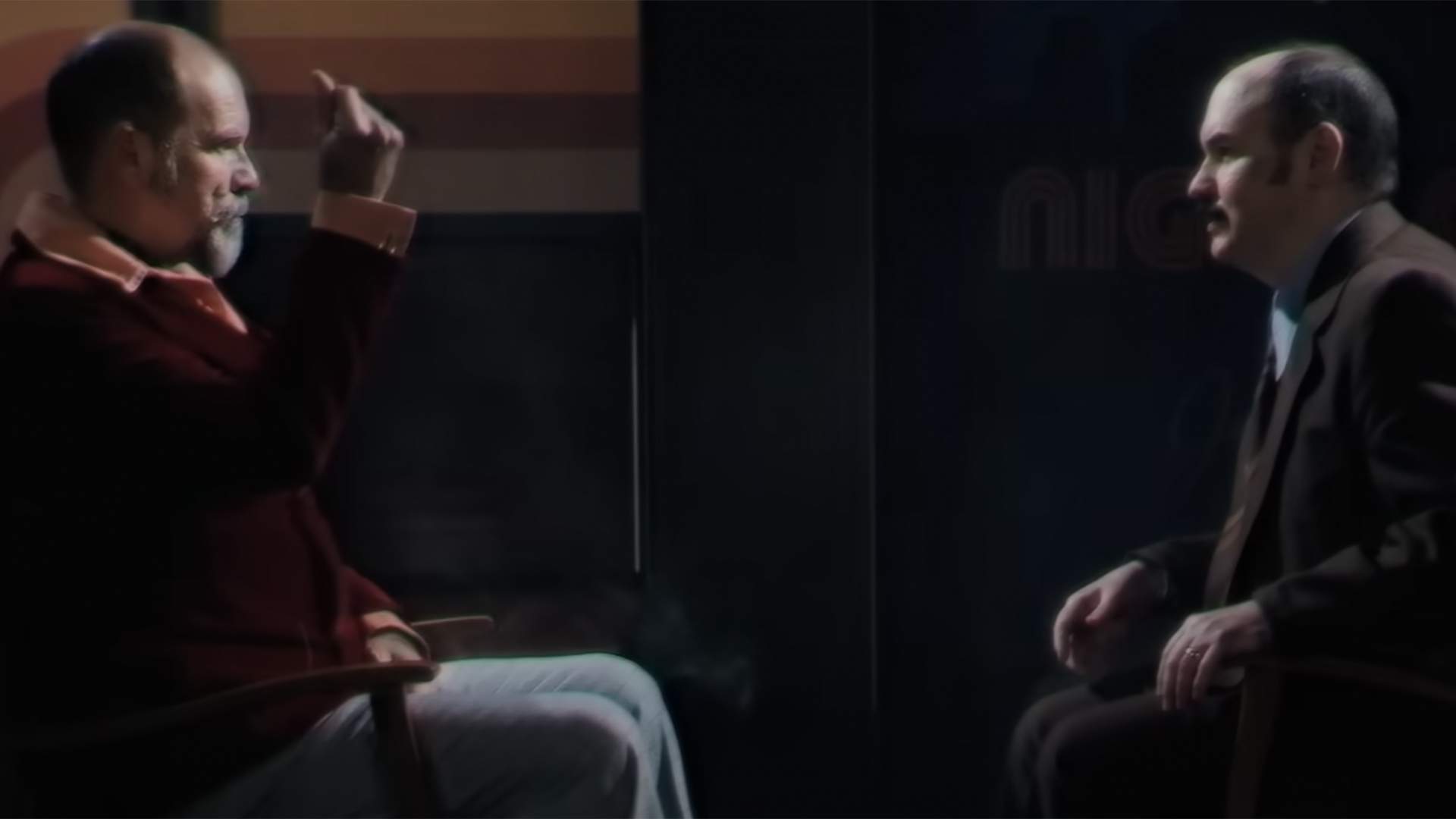
Cameron: "Going into the production of it, it was just 'let's just commit to the idea that we're making this show in 1977'. So all the costumes, the lighting, the way we shot it, everything was pretty much of the period apart from the cameras we shot on — we obviously had to do some treatment on that in post. But we just tried to shoot it exactly like a late-70s Tonight Show.
That meant three cameras were rolling the same at the same time, and the lighting looks a bit hot and harsh. But you just have to embrace all that stuff."

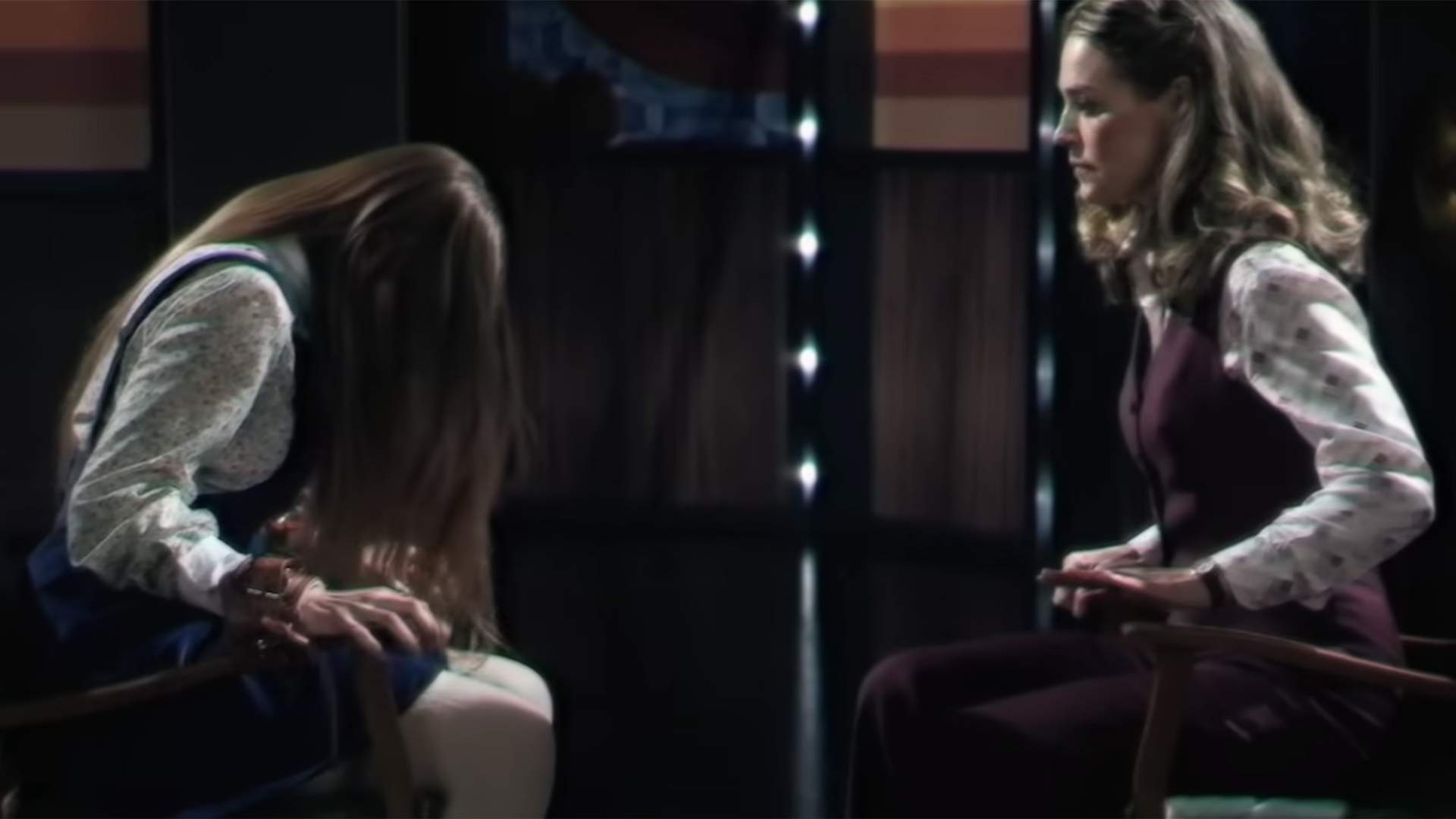
On Drawing Upon Their Own Experiences Working in TV Studios
Colin: "I directed, in a past life going back 20-plus, 25 years, I actually worked in television in Singapore. I got a job fresh out of uni directing sitcoms, English-language sitcoms, which were really big, huge successes in that part of the world. It was a lot of fun.
That was a three-camera set up where we rehearsed through the week, and then we bring in an audience, so we would shoot it as if it were live. We would get a second go if something didn't work out, but we also didn't want to keep the audience there too late, because they'd stop laughing after the second or third take. And Cam's done some work in TV, too.
So we had a sense of how adrenaline-fuelled that environment is, and how it's very stressful and has lots of anxiety, but it's also seat-of-your-pants stuff — it's exciting, it's fun. So we thought taking that as the foundation for an already very tense environment, and then bring in the supernatural element, we thought that that could go places.
Ten years later, ten years of writing, we got there — so it helped a lot."

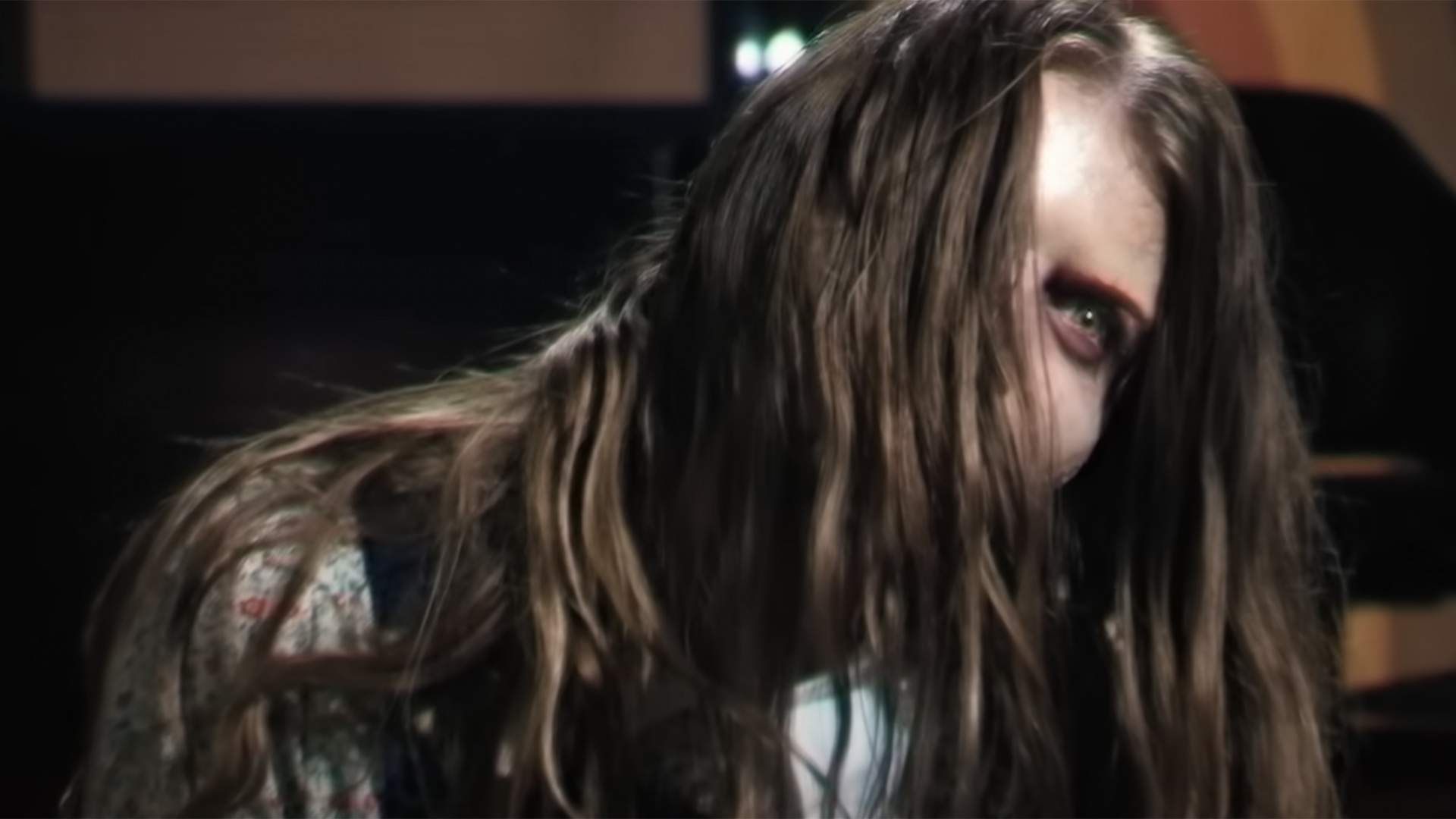
On How the Film Evolved Over the Ten-Year Writing Period
Cameron: "It went through lots of different iterations. In fact, I think the first draft it was centred around a seance. It was going to be a seance live on TV. But we kind of blew our wad early on that, because the seance was happening sort of at the 25-minute mark and we found we had nowhere to go after that.
So it was constantly sort of rethinking the conceit and also finding the characters…"
Colin: "That were going to warrant 90 minutes of your time."
Cameron: "Exactly."
Colin: "A character that could host legitimately host the talk show, but has his own baggage, his own issues. Plot's important, story is important, but for us, the characters are key.
You want people walking away saying 'I hated that guy. I love that guy. I wanted to know more about that person'. And that's the stuff that really needs to succeed for any movie to work, regardless of genre."

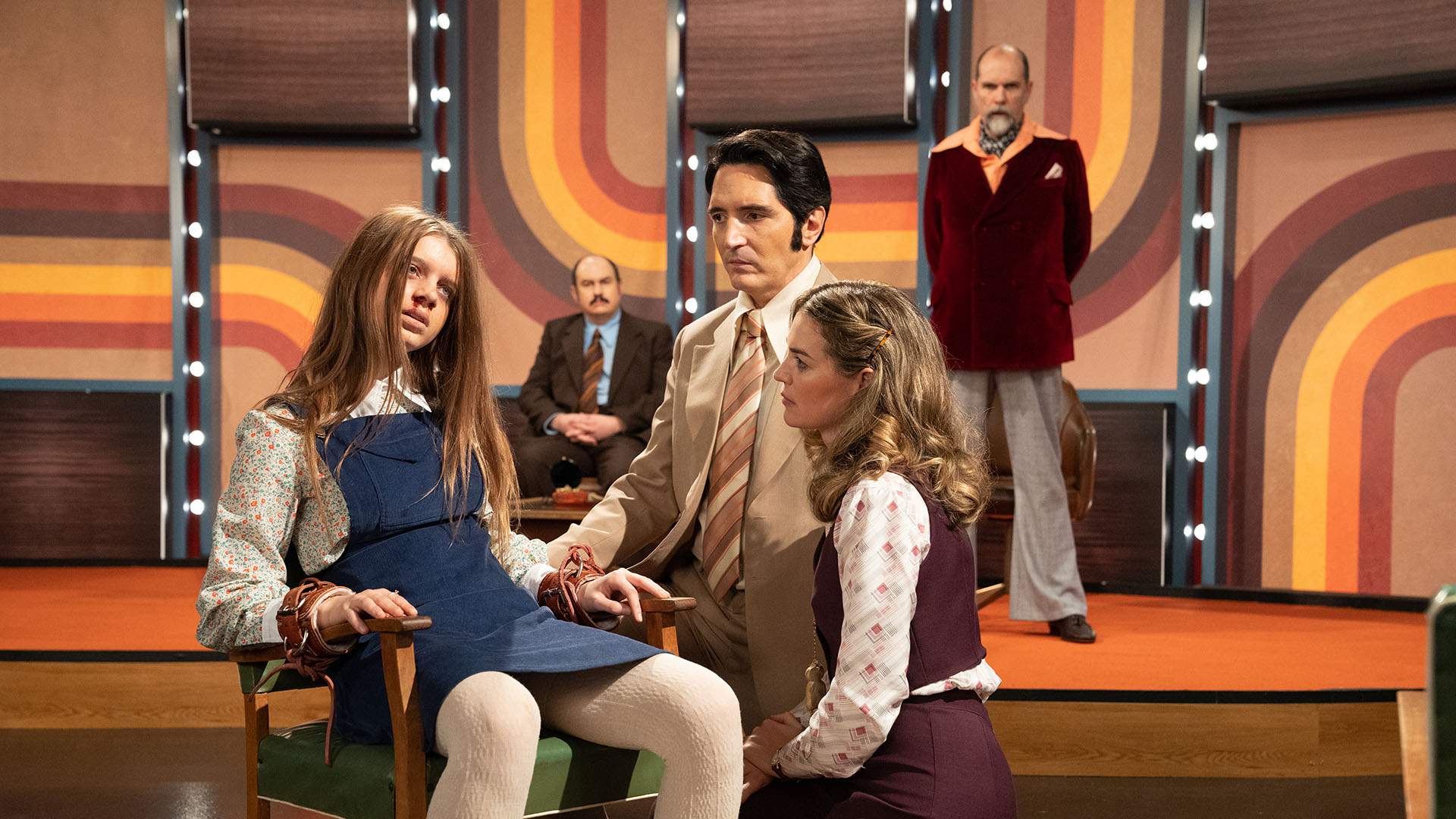
On What Inspired Jack Delroy — and the Cairnes' Take on Him
Cameron: "Jack's a little bit desperate at this point in his career. He's been at it for a little while, but he's…"
Colin: "Ruthlessly ambitious."
Cameron: "But, his background is, he's this Midwesterner, worked in radio. He's kind of a sweet guy with good intentions."
Colin: "He may have made one or two poor choices over the course of his career. A victim of some of those choices, I think. But he's a man who's experiencing some grief as well. I mean, his wife has passed away a year prior to the taping of this show. And, we explained early on — I don't think it's a spoiler to say that — his most-successful episode to date was the episode where his dying wife came on as his special guest.
So there are some ethical concerns, I think, about his character. But the audience loves him. He's got his hardcore fans, and he's a showman through and through, who believes the show must go on. But that, of course, becomes harder and harder as some very strange events occur over the course of evening."
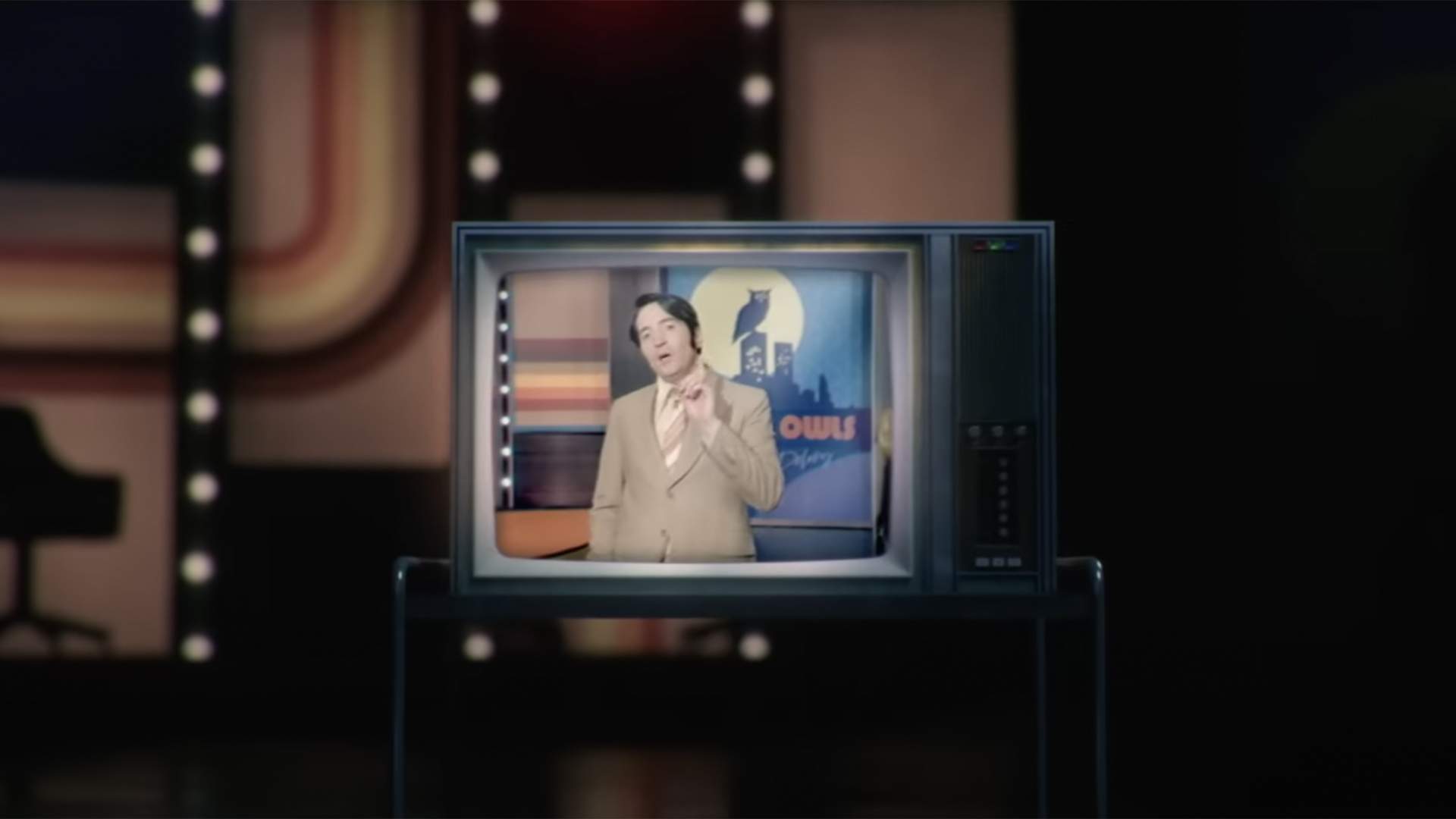
Cameron: "When we first set out, we were referring a lot to Dick Cavett, Johnny Carson, I guess in our heads. He was almost an amalgam of those two. But then, we started drawing a lot on our own experiences, watching our homegrown talent. When I say homegrown…"
Colin: "Bronx-born Australian Don Lane."
Cameron: "Who people of a certain age will remember. We obviously grew up in the early 80s and watched a lot of Don Lane. Don and Bert, and Mike Walsh, and saw a little bit of Graham Kennedy as well.
So they were definitely there in our heads as we are writing the character, but I think we were thinking more the urbane kind of American TV host."
Colin: "We watched a lot of Dick Cavett. A lot of Dick Cavett. There's a bit of a blend."
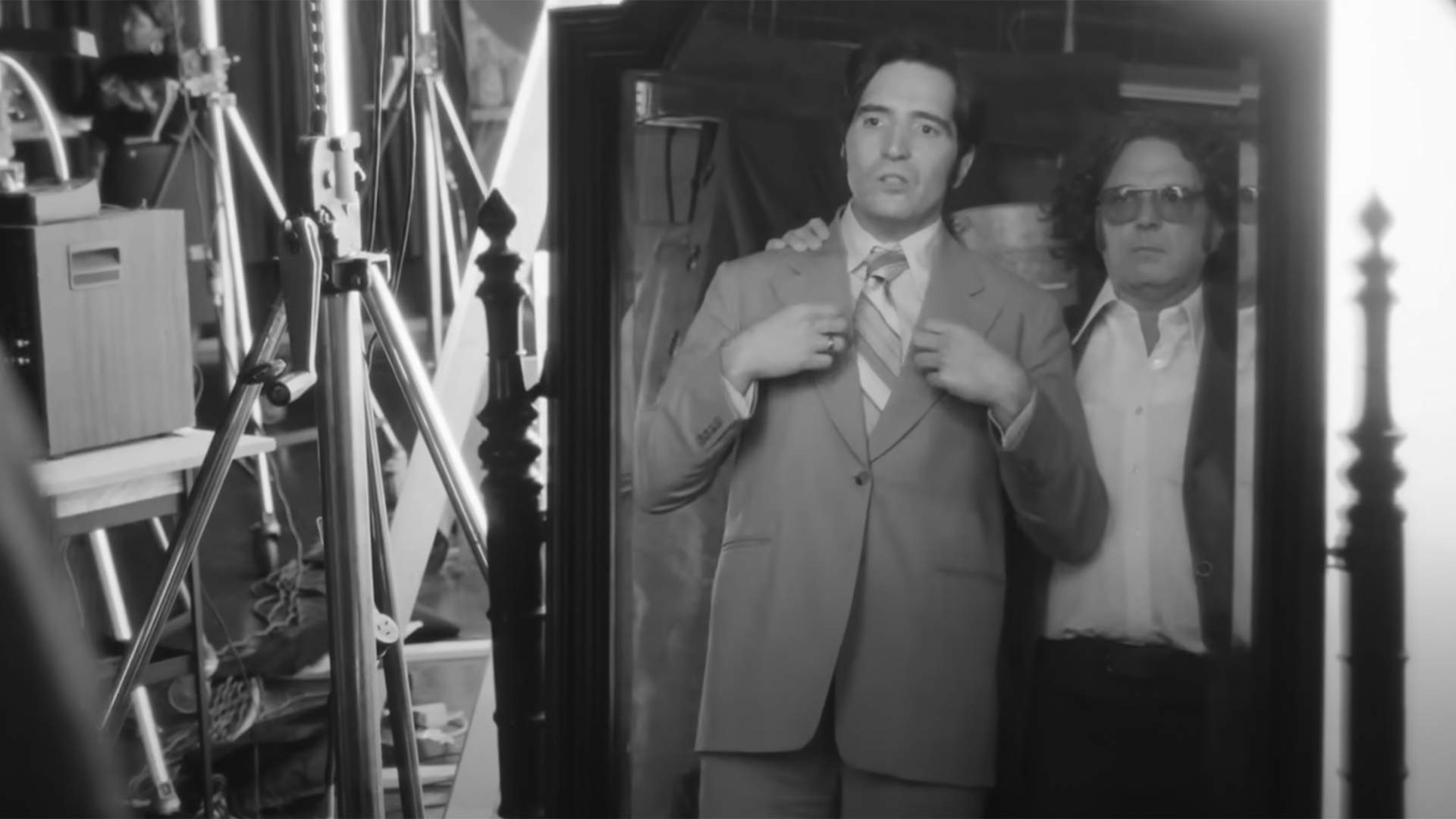
Cameron: "But when the American producers got on board and David got on board, we pointed them in the direction of Don Lane. We just thought as a curious thing they might be interested to see our own talent.
And the producers, Steven Schneider [Insidious: The Red Door, Knock at the Cabin] in particular, and then David, our main actor, really took to Don. And he was like 'he's great'."
Colin: "Yeah, 'what a character'.
Because there's layers. He's not the slick showman that Carson is. Cavett's a bit more the slightly, there's a hint sarcasm, cynicism, but quite the intellectual — very happy to be talking to some novelist as he is to some pop singer.
But Don was a bit less polished and a lot more, well, basically into the supernatural. He would have these lengthy specials where he'd have the Warrens [the inspiration for The Conjuring films] or whichever psychic happened to be visiting Australia. He would dedicate entire episodes, sometimes several episodes to these characters, which made him really different from the American version of that host."

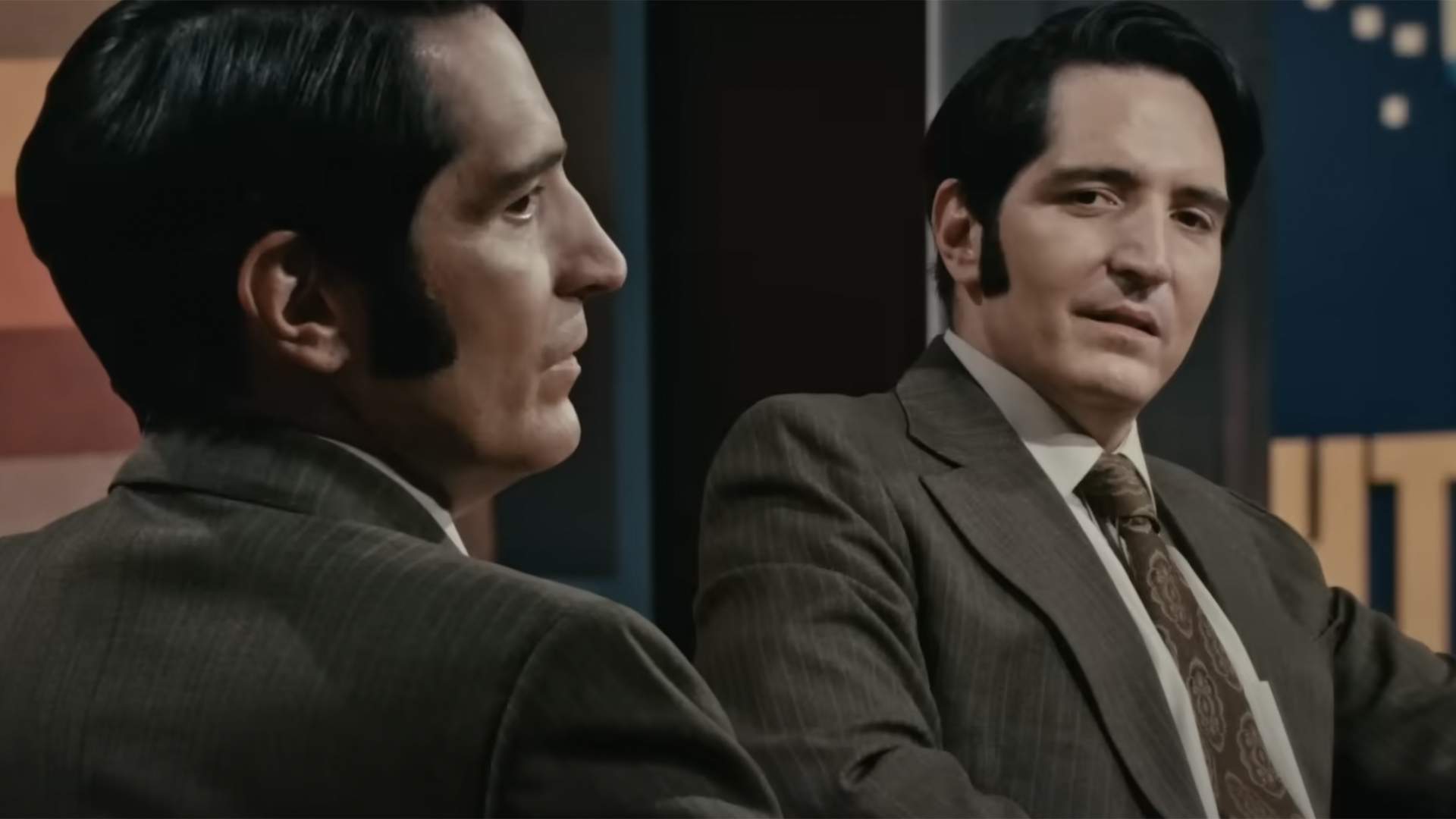
On Casting David Dastmalchian
Colin: "We knew what a fan of the genre he was. He writes for Fangoria. His love of regional TV horror hosts."
Cameron: "He writes comic books, he has written graphic novels"
Colin: "He has Count Crowley.
So we knew how embedded he was in the horror scene back in the States. And add to which he's just a really, really great character actor. And he has this look about him that also screams 70s, I think.
So when we floated his name with all the producers, it was probably the first time everyone said yes at the same time. We were out to him a couple of weeks later through one of our American producers, the great Roy Lee [Don't Worry Darling, Barbarian], and weeks later we're talking to him and then a bit later he's signed on. We've got him.
It just felt like was meant to be, and now you watch it and you cannot imagine anyone else being that character."
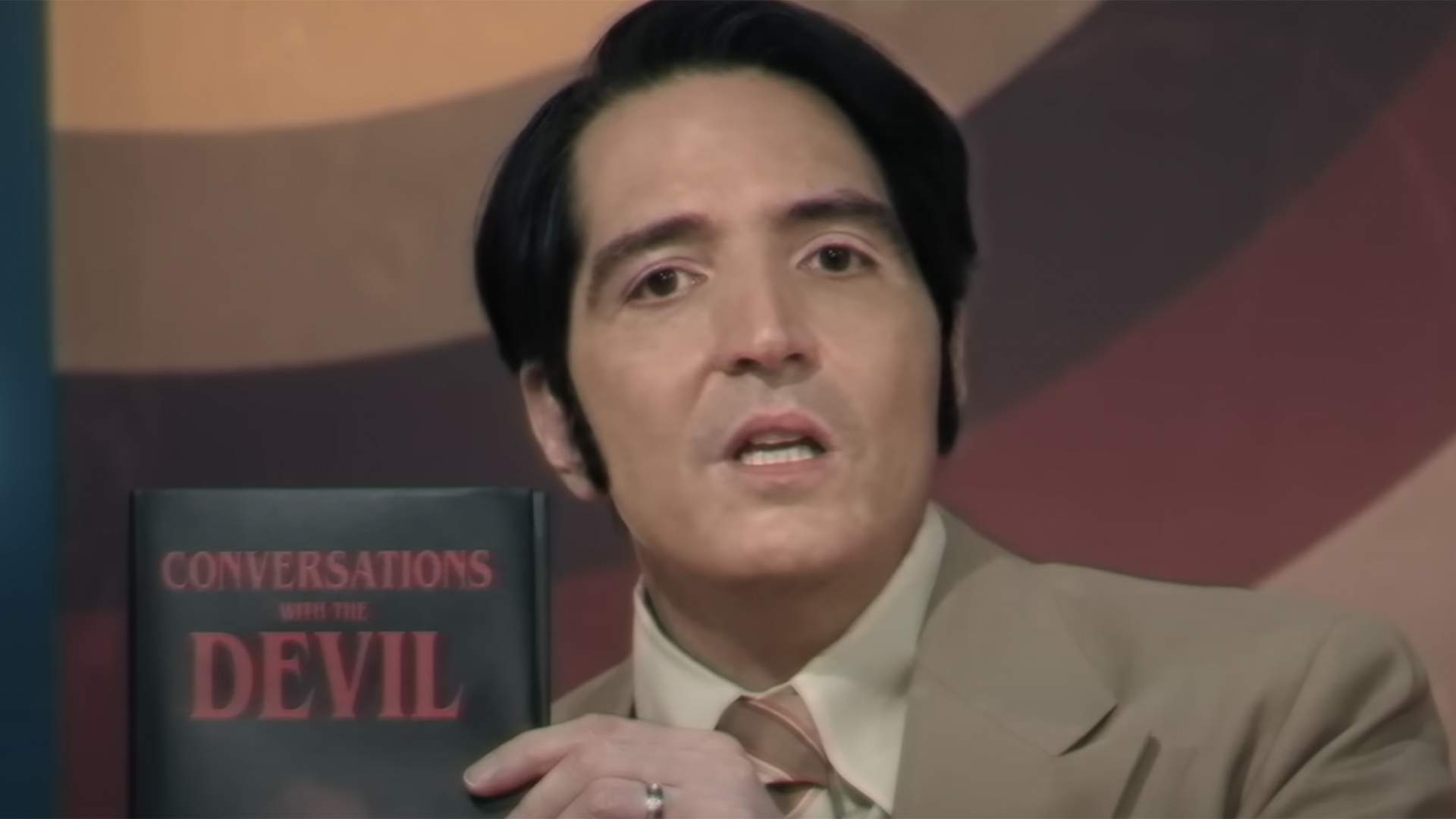
Cameron: "It just wouldn't have worked if we'd had a big A-list star in there, you know, if Ryan Gosling — he's a great actor, but…"
Colin: "You'd spend 90 minutes trying to look past the star.
He's going to go on to bigger, possibly better — he's already working on a big show for Apple. Plus, the world is his oyster, and it has been for ages. We're just fortunate that we're a small part of his journey to international stardom."

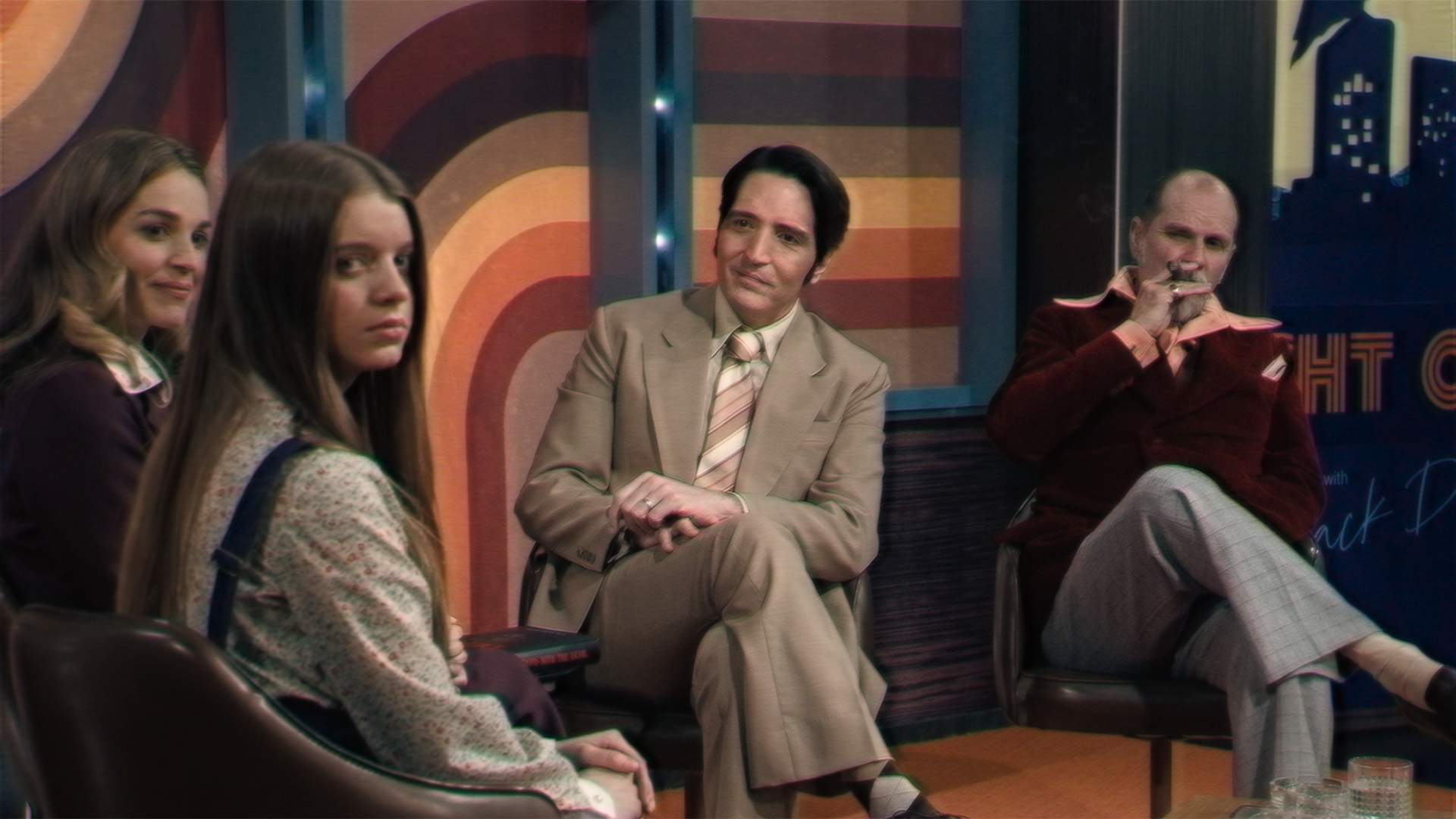
On Making the Connection Between the Film's Literal Possession and the Ravenous Urges that Sensationalist TV Sparks
Colin: "Obviously, it was an important consideration in the scripting and the shooting, because we have the studio audience there and they're complicit in that. They're not — no one's leaving their seats.
What would we do if we were there and shit started to go down like that? The logical thing would be to run to the door, but the fact is they know that the weirder and stranger and darker things get, the better the ratings are."
Cameron: "I mean, we all love a bit of car crash TV, where we just can't turn away. And I think, yeah, definitely playing into that idea."
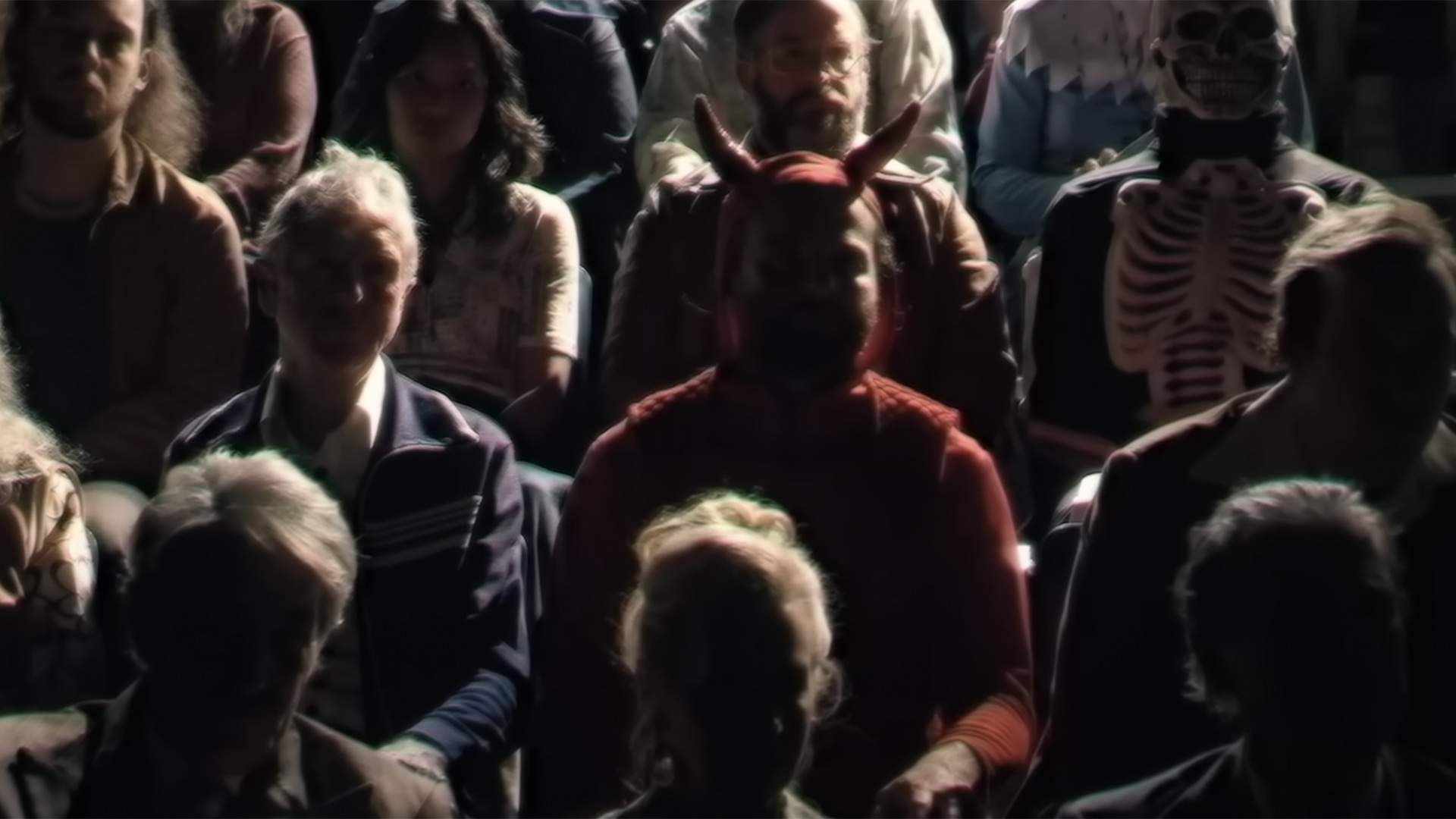
Colin: "We're a little complicit, almost, and responsible to some degree for shows going where they go. And that hasn't changed — that was there before 77, and it's gotten even worse in many ways since.
So if there's some little commentary or critique going — no, maybe not a critique — it definitely has fed into it. It was a serious consideration, because at what point would the audience just say 'this is stupid, I'm going home' or switch off? Or would the network just shut down the broadcast?
So the fact that no one does had a lot to do with how we pace the thing, and how we reveal information, and where the scares come and all that sort of stuff. That's a more technical consideration, but it plays into what you're saying."

Late Night with the Devil opened in cinemas Down Under on Thursday, April 11, 2024. Read our review.
